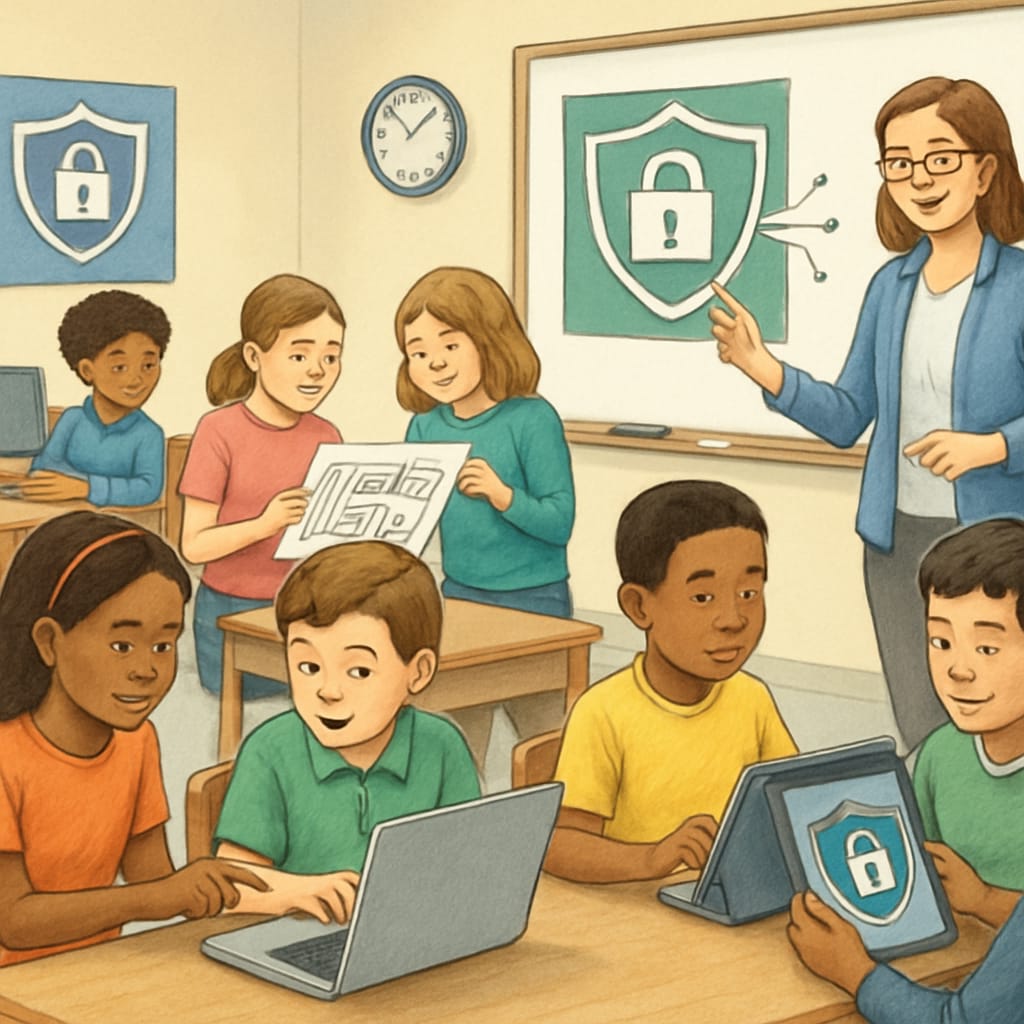In today’s rapidly evolving digital landscape, the connection between university reputation, employment opportunities, and cybersecurity education has become increasingly significant. As cyber threats grow more sophisticated, the demand for individuals skilled in cybersecurity continues to rise. This article examines how introducing cybersecurity education at the K12 level can prepare students for future careers while emphasizing the role of university reputation in shaping employment prospects.
Why Early Cybersecurity Education Matters
Cybersecurity education during K12 years is essential because it lays a foundation for critical thinking, problem-solving, and digital literacy. By teaching students how to recognize risks, protect systems, and understand the principles of online security, schools can foster a generation that is more prepared to navigate the challenges of the digital world. For example, introducing practical lessons on password management, phishing prevention, and basic encryption techniques equips students with lifelong skills.
Moreover, early exposure to cybersecurity concepts can spark interest in technology-related careers, encouraging students to pursue higher education in this field. Universities with strong reputations in cybersecurity research and training often attract these students, further enhancing their career prospects in a competitive job market.

University Reputation and Its Impact on Employment
When it comes to employment opportunities, university reputation plays a critical role. Employers often associate prestigious universities with rigorous academic standards and high-quality graduates. In fields like cybersecurity, where specialized skills are highly valued, attending a well-regarded institution can open doors to elite career opportunities.
Universities with strong reputations in cybersecurity often collaborate with industry leaders, offering students access to internships, research projects, and cutting-edge technologies. For instance, schools like MIT and Stanford are renowned for their innovation in cybersecurity, making their graduates highly sought after by top employers. However, students who lack foundational exposure to cybersecurity during K12 years may struggle to gain admission to such institutions or excel in their programs.

The Growing Demand for Cybersecurity Professionals
The rise in cyberattacks has created a surge in demand for skilled cybersecurity professionals. According to industry reports, the global cybersecurity market is expected to grow significantly in the coming years, with roles such as security analysts, penetration testers, and ethical hackers becoming increasingly prominent. As a result, universities and employers alike are seeking individuals who possess not only technical expertise but also a deep understanding of cybersecurity principles.
To meet this demand, integrating cybersecurity education into K12 curricula is crucial. Students who develop early proficiency in cybersecurity are better positioned to pursue advanced degrees at reputable universities, ultimately increasing their employability. Furthermore, companies often prioritize candidates from institutions with strong reputations because they trust the quality of education these universities provide.
How Schools Can Support Cybersecurity Career Preparation
Schools can play a pivotal role in preparing students for cybersecurity careers by adopting the following strategies:
- Incorporating cybersecurity topics into STEM (Science, Technology, Engineering, and Mathematics) programs.
- Providing hands-on experiences through coding challenges, simulations, and real-world problem-solving exercises.
- Collaborating with universities and industry experts to create mentorship programs and career exploration opportunities.
- Promoting digital literacy as a fundamental skill across all subjects.
Such initiatives not only build technical competencies but also instill confidence in students, enabling them to pursue higher education at reputable universities and thrive in the cybersecurity workforce.
Conclusion
As the digital world continues to expand, the importance of cybersecurity education in K12 curricula cannot be overstated. Early exposure to cybersecurity principles equips students with the skills necessary to excel in higher education and secure employment in an increasingly competitive job market. Furthermore, university reputation plays a pivotal role in shaping career prospects, highlighting the need for strong foundational education. By investing in cybersecurity education at the K12 level, we can ensure a brighter future for students and a more secure digital society.
Readability guidance: The article uses short paragraphs, lists, and transitions to maintain clarity and engagement. It avoids excessive technical jargon, ensuring accessibility for readers of varying expertise levels.


